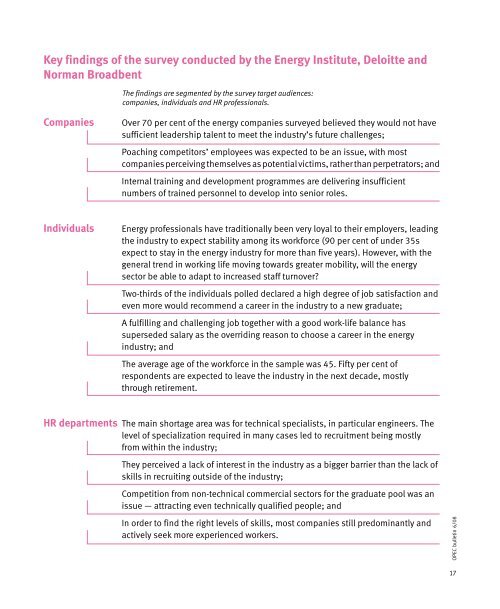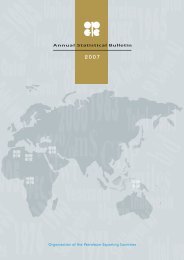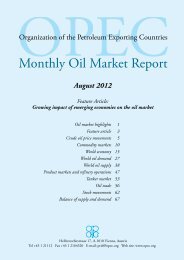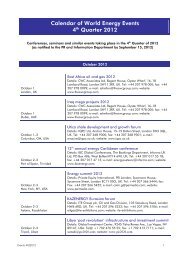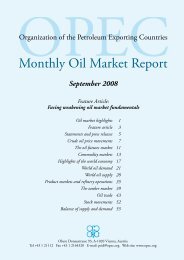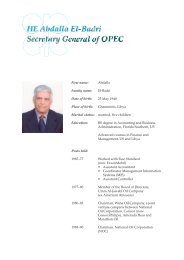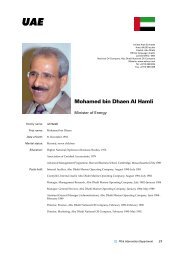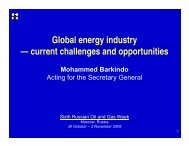Create successful ePaper yourself
Turn your PDF publications into a flip-book with our unique Google optimized e-Paper software.
Key findings of the survey conducted by the Energy Institute, Deloitte and<br />
Norman Broadbent<br />
The findings are segmented by the survey target audiences:<br />
companies, individuals and HR professionals.<br />
Companies Over 70 per cent of the energy companies surveyed believed they would not have<br />
sufficient leadership talent to meet the industry’s future challenges;<br />
Poaching competitors’ employees was expected to be an issue, with most<br />
companies perceiving themselves as potential victims, rather than perpetrators; and<br />
Internal training and development programmes are delivering insufficient<br />
numbers of trained personnel to develop into senior roles.<br />
Individuals Energy professionals have traditionally been very loyal to their employers, leading<br />
the industry to expect stability among its workforce (90 per cent of under 35s<br />
expect to stay in the energy industry for more than five years). However, with the<br />
general trend in working life moving towards greater mobility, will the energy<br />
sector be able to adapt to increased staff turnover?<br />
Two-thirds of the individuals polled declared a high degree of job satisfaction and<br />
even more would recommend a career in the industry to a new graduate;<br />
A fulfilling and challenging job together with a good work-life balance has<br />
superseded salary as the overriding reason to choose a career in the energy<br />
industry; and<br />
The average age of the workforce in the sample was 45. Fifty per cent of<br />
respondents are expected to leave the industry in the next decade, mostly<br />
through retirement.<br />
HR departments The main shortage area was for technical specialists, in particular engineers. The<br />
level of specialization required in many cases led to recruitment being mostly<br />
from within the industry;<br />
They perceived a lack of interest in the industry as a bigger barrier than the lack of<br />
skills in recruiting outside of the industry;<br />
Competition from non-technical commercial sectors for the graduate pool was an<br />
issue — attracting even technically qualified people; and<br />
In order to find the right levels of skills, most companies still predominantly and<br />
actively seek more experienced workers.<br />
<strong>OPEC</strong> bulletin 6/08<br />
17


